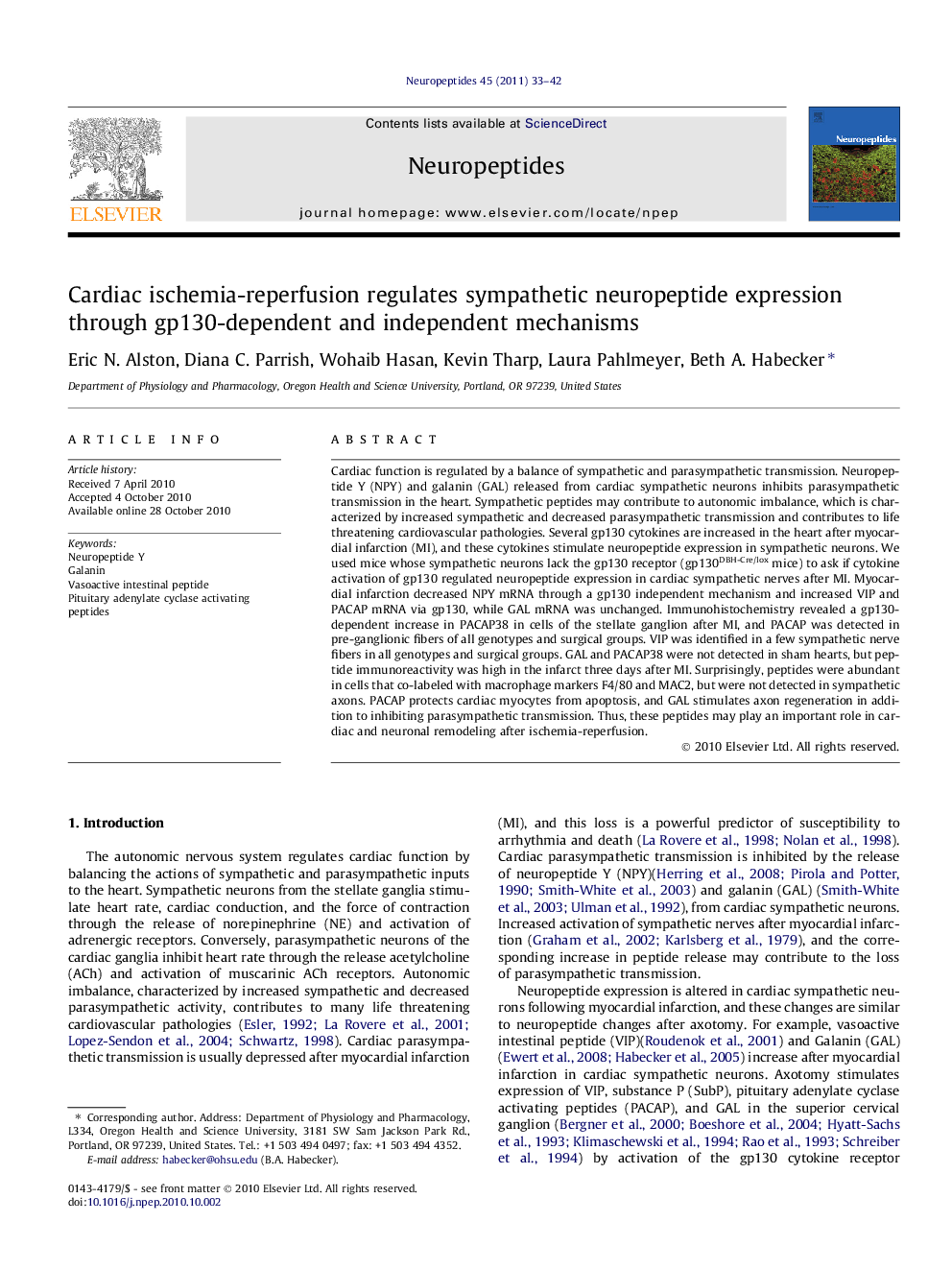| Article ID | Journal | Published Year | Pages | File Type |
|---|---|---|---|---|
| 2808492 | Neuropeptides | 2011 | 10 Pages |
Cardiac function is regulated by a balance of sympathetic and parasympathetic transmission. Neuropeptide Y (NPY) and galanin (GAL) released from cardiac sympathetic neurons inhibits parasympathetic transmission in the heart. Sympathetic peptides may contribute to autonomic imbalance, which is characterized by increased sympathetic and decreased parasympathetic transmission and contributes to life threatening cardiovascular pathologies. Several gp130 cytokines are increased in the heart after myocardial infarction (MI), and these cytokines stimulate neuropeptide expression in sympathetic neurons. We used mice whose sympathetic neurons lack the gp130 receptor (gp130DBH-Cre/lox mice) to ask if cytokine activation of gp130 regulated neuropeptide expression in cardiac sympathetic nerves after MI. Myocardial infarction decreased NPY mRNA through a gp130 independent mechanism and increased VIP and PACAP mRNA via gp130, while GAL mRNA was unchanged. Immunohistochemistry revealed a gp130-dependent increase in PACAP38 in cells of the stellate ganglion after MI, and PACAP was detected in pre-ganglionic fibers of all genotypes and surgical groups. VIP was identified in a few sympathetic nerve fibers in all genotypes and surgical groups. GAL and PACAP38 were not detected in sham hearts, but peptide immunoreactivity was high in the infarct three days after MI. Surprisingly, peptides were abundant in cells that co-labeled with macrophage markers F4/80 and MAC2, but were not detected in sympathetic axons. PACAP protects cardiac myocytes from apoptosis, and GAL stimulates axon regeneration in addition to inhibiting parasympathetic transmission. Thus, these peptides may play an important role in cardiac and neuronal remodeling after ischemia-reperfusion.
